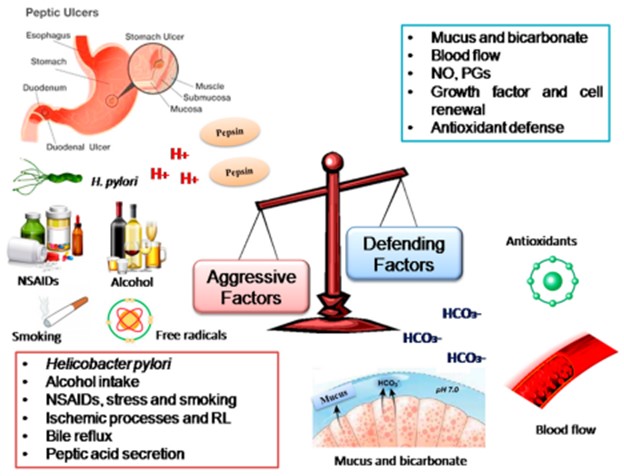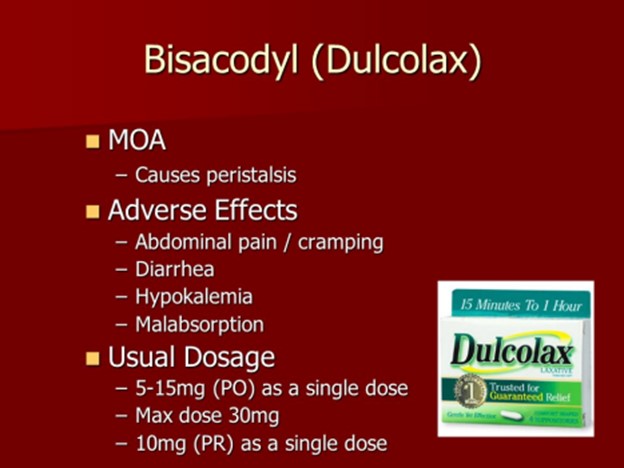A nurse is reviewing the medical record of a client who has a peptic ulcer. Which of the following findings should the nurse identify as a risk factor for this condition?
History of bulimia
Consumes spicy foods 5 to 8 times weekly
History of ibuprofen use
Drinks green tea
The Correct Answer is C
Ibuprofen is a nonsteroidal anti-inflammatory drug (NSAID) that can increase the risk of developing peptic ulcers. It can cause irritation and damage to the lining of the stomach and small intestine, leading to the formation of ulcers.

The other options may not directly contribute to the development of peptic ulcers:
History of bulimia: While repeated vomiting can irritate the esophagus, it is less likely to directly cause peptic ulcers.
Consuming spicy foods 5 to 8 times weekly: Spicy foods can exacerbate the symptoms of existing peptic ulcers, but they are not considered a direct risk factor for their development.
Drinking green tea: Green tea is generally considered to have health benefits and is not known to be a risk factor for peptic ulcers.
Nursing Test Bank
Naxlex Comprehensive Predictor Exams
Related Questions
Correct Answer is ["100"]
Explanation
To calculate the IV flow rate in drops per minute (gtt/min), you can use the following formula: Flow rate (gtt/min) = (Volume to be infused in mL) x (Drop factor) / (Time in minutes) In this case, the volume to be infused is 100 mL, the drop factor is 60 gtt/mL, and the time is 60 minutes.
Flow rate (gtt/min) = (100 mL) x (60 gtt/mL) / (60 min)
Canceling out the mL and min units, the formula becomes:
Flow rate (gtt/min) = 100 x 60 / 60
Flow rate (gtt/min) = 100
Therefore, the nurse should set the IV flow rate to deliver 100 gtt/min.
Correct Answer is D
Explanation
Bisacodyl is a stimulant laxative commonly used to treat constipation. However, it is important to educate the client about the potential risks associated with chronic laxative use. The statement regarding electrolyte imbalance is important because excessive or prolonged use of laxatives can lead to electrolyte disturbances, such as low potassium levels (hypokalemia), which can have adverse effects on various body functions.

"Daily bowel movements are necessary for good intestinal health": While regular bowel movements are generally desirable, stating that daily bowel movements are necessary for good intestinal health is an overgeneralization. Bowel movement frequency can vary among individuals, and it is important to consider other factors such as diet, hydration, and overall health.
"Chronic use of laxatives can lead to a tear in the rectal mucosa": While chronic use of laxatives can lead to complications such as dependence and potential damage to the digestive system, specifically mentioning a tear in the rectal mucosa (rectal mucosal injury) is not the most commonly associated concern.
"Decrease your intake of high-fiber foods": It is generally recommended to increase fiber intake for individuals with constipation. Decreasing high-fiber foods would counteract the benefits of dietary fiber in promoting regular bowel movements and alleviating constipation.
Whether you are a student looking to ace your exams or a practicing nurse seeking to enhance your expertise , our nursing education contents will empower you with the confidence and competence to make a difference in the lives of patients and become a respected leader in the healthcare field.
Visit Naxlex, invest in your future and unlock endless possibilities with our unparalleled nursing education contents today
Report Wrong Answer on the Current Question
Do you disagree with the answer? If yes, what is your expected answer? Explain.
Kindly be descriptive with the issue you are facing.
